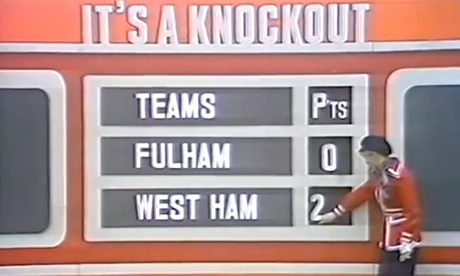Home advantage has long been considered a crucial factor in football, with teams often performing better in front of their home fans.
This advantage is even more pronounced in the UEFA knockout stages, where teams compete in a two-legged tie. The benefits of playing at home in the knockout stages are numerous and can often decide which team progresses to the next round.
Home advantage is key
The significance of home advantage in the knockout stages of the UEFA Champions League is illustrated by the following statistics:
In the competition’s history, teams have won 74% of their first-leg games when playing at home and 60% of the second legs in knockout ties.
In the last 10 seasons, 87.5% of the teams that progressed to the quarter-finals had won their home leg (either the first or second leg).
It’s really rare for a team to progress to the quarterfinals after losing their home leg. The 2018/19 season proved an exception when Manchester United and Ajax lost at home but turned things around in the second leg.
Because of this, you may want to look for value in the ‘to qualify’ markets where most teams will be trading odds on to qualify. After the first leg results are known, the incentive for the away team to step up in the home leg will be high, and the statistics favourable.
You can see how the importance of home advantage is heightened in the Champions league.
Therefore, the first leg’s aim is to try and not lose, which in turn means that your defence is a priority unless there is a real mismatch in skill levels. But typically, that’s not the case, as most mismatched teams should have been eliminated in the group stages.
Where least goals will be scored
The incentive to prioritise not losing tends to lead to fewer goals in the first-leg matches. Over the past 10 seasons, the average number of goals scored in the first leg of the round of 16, quarter-finals, and semi-finals combined was 2.4 per game.
But over the past 10 seasons (2011/12 to 2020/21), the average number of goals scored in the second leg of the round of 16, quarter-finals, and semi-finals combined was 2.6 per game.
Aiming for trading or betting strategies that take advantage of lower-scoring games, for example, under 2.5 goals, seems the most sensible path in the first leg. But this should be inverted for the second leg, where there is more incentive to score and over 2.5 goals is a more likely outcome.
When to lay the draw
Lower goals also mean, by default, there is more chance of a draw in games. Examining the statistics confirms this to be true.
Over the past 10 seasons, approximately 24.5% of matches in the first leg of the UEFA Champions League knockout stages ended in a draw. But only 19% of matches in the second leg ended in a draw.
Laying the draw is definitely a second-leg preference.
Are away goals important anymore?
One significant change that influenced previous tournaments is the away goals rule.
The rule was changed to mean that away goals no longer matter if the game is tied on aggregate, and instead, the match would go to extra time and penalties.
While it’s too early to indicate the effect it has had. Over the last ten years, approximately 20% of knockout ties were decided by this rule before the rule was changed.
The consensus view is that home teams may be more inclined to be more aggressive in the first leg, knowing they no longer have the advantage of the away goals rule to fall back on. Defending a lead away and hoping to sneak a goal on the break is more likely to be a characteristic going forward.
Despite the change in the away goal rule, there is still one significant advantage to playing second, and that is that even if the match goes the full distance, you will still get the benefit of home advantage in extra time and during penalties.
Summary
While each match needs to be assessed on its own merits, we can see long-term biases that can shape where and how you can deploy your favourite betting or trading strategy by looking at historical statistics.
Knockout competitions like the UEFA European competitions have clearly definable long terms trends that you should take advantage of.

